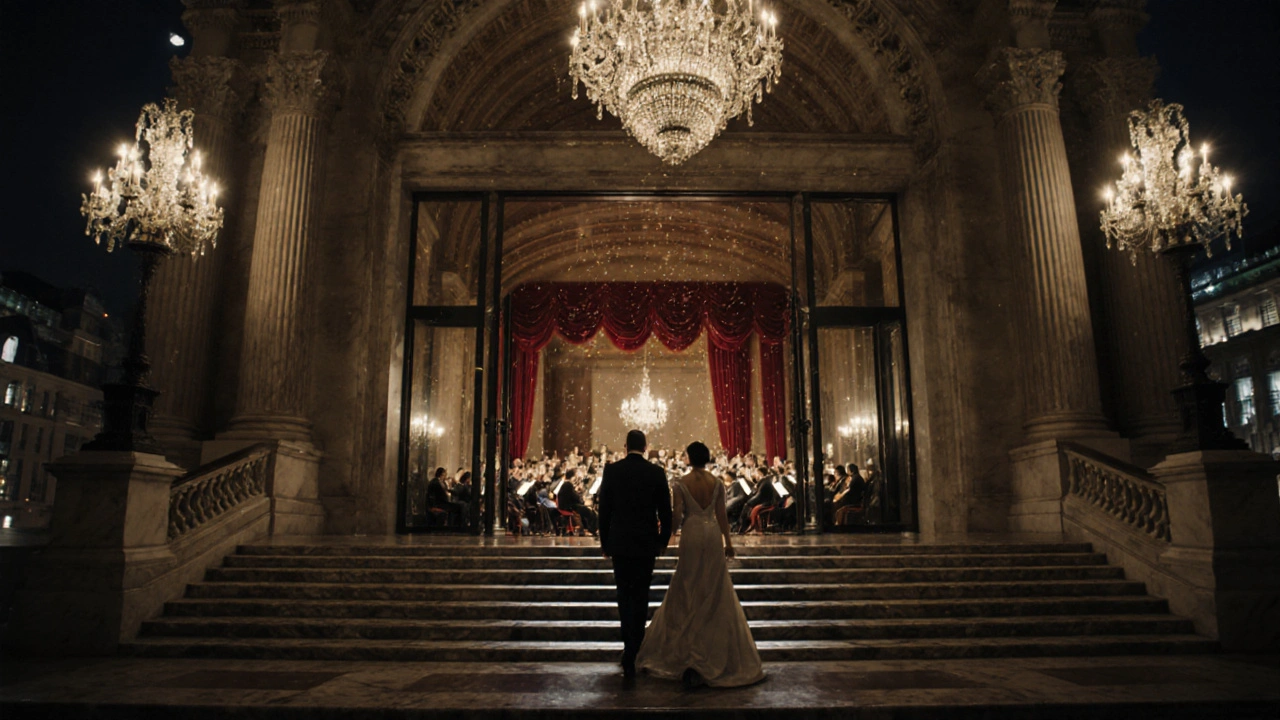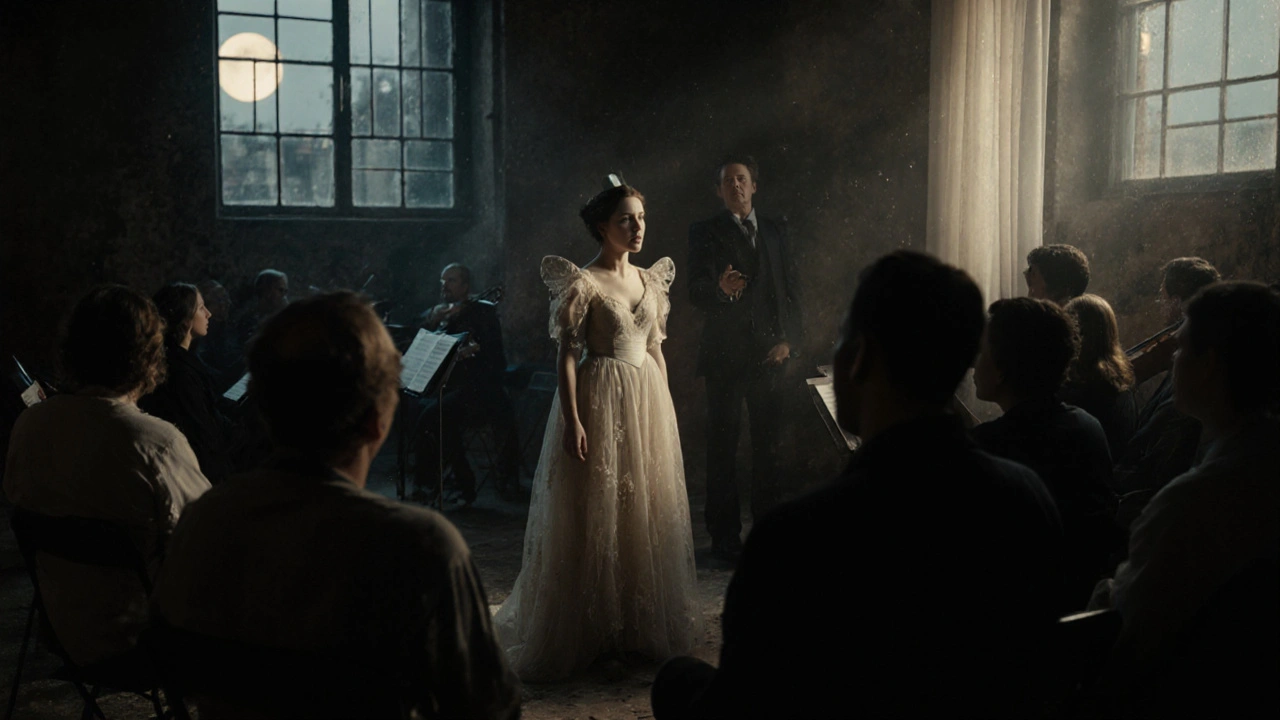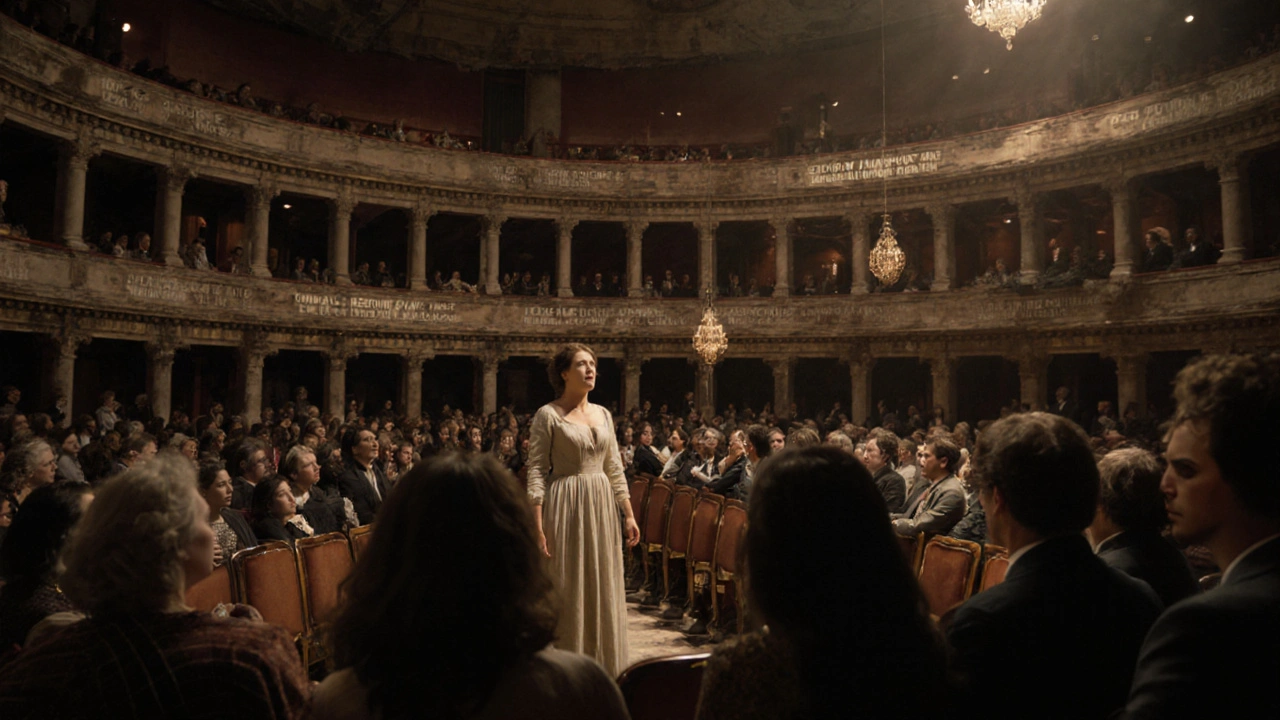London doesn’t just have opera-it has some of the most powerful, unforgettable opera in the world. If you’re planning to see a show, you’ve got three main options: the English National Opera (ENO), the Royal Opera House (ROH), and the growing number of touring productions that bring world-class performances to smaller venues across the city. Each offers something different. None of them are the same. And choosing the right one can make your night unforgettable-or just another evening out.
English National Opera: Opera for Everyone
ENO runs out of the London Coliseum, a grand 1904 theatre in St. Martin’s Lane. It’s not the flashiest venue, but it’s the most accessible. Their big move? Performing all operas in English. No subtitles. No guessing what’s happening when the tenor starts singing. You hear every word, clearly, like a play with music.
This isn’t just a gimmick. It changes how you connect. You feel the drama. You laugh at the jokes. You cry when the mother sings her lullaby. In 2024, ENO’s production of La Bohème had audiences sobbing in the aisles-not because the music was loud, but because they understood every line.
ENO also keeps prices low. Tickets start at £15 for standing room. Even premium seats rarely go over £80. Compare that to ROH, where even the cheapest seats often cost £60+. ENO’s mission is simple: opera shouldn’t be a luxury. It should be part of everyday life.
Don’t expect gilded balconies or velvet curtains everywhere. The Coliseum is worn-in, real. The staff are friendly. The bar serves decent wine at bar prices. You leave feeling like you were part of something honest, not just a spectacle.
Royal Opera House: The Grand Stage
If ENO is the neighborhood pub where everyone knows your name, the Royal Opera House is the Michelin-starred restaurant you save for birthdays. It’s in Covent Garden. It’s got the chandeliers, the marble stairs, the hushed reverence before the curtain rises.
ROH is where the big names go. Anna Netrebko. Jonas Kaufmann. The Royal Ballet shares the building, so you might see a prima ballerina walk past you in the lobby. This is the home of the Royal Opera Company, and they don’t cut corners. Sets are built from scratch. Costumes are hand-sewn. Orchestras are top-tier. The chorus has over 100 members.
But here’s the catch: you pay for it. A decent seat at ROH? Expect to spend £100-£250. Even the cheapest standing tickets are £25. And they don’t do English translations. You get surtitles-small screens above the stage. If you don’t speak Italian, German, or French, you’re relying on a 10-second lag to catch the plot.
Still, if you want to hear a live orchestra play Wagner’s Tristan und Isolde with 100 musicians and a conductor who’s spent 20 years studying the score, ROH is where it happens. It’s not just opera. It’s history in motion. The building itself opened in 1858. You’re sitting where Pavarotti once sang.
Touring Productions: Opera Outside the Box
Most people think opera only happens in big theatres. But in London, that’s changing fast. Smaller companies are taking opera to libraries, churches, even disused tube stations.
Companies like Opera Holland Park and Garsington Opera (which brings shows to London in summer) offer intimate, high-quality performances in unexpected places. In 2024, Madama Butterfly was staged in a converted 1930s cinema in West London. The audience sat on folding chairs. The orchestra was tucked behind a curtain. The soprano sang without a mic. And it was more moving than any big-stage version.
Then there’s English Touring Opera. They take fully staged operas on the road-not just to other cities, but to places like Brixton, Hackney, and Croydon. They perform in community centres. They do post-show Q&As. They even run workshops for kids. Their 2025 season includes The Marriage of Figaro in a former post office in Southwark.
These shows aren’t cheap, but they’re cheaper than ROH. Tickets range from £20 to £50. And the intimacy? Priceless. You’re two rows away from the lead singer. You see the sweat on their brow. You hear their breath between phrases. It’s opera stripped bare-and it hits harder.

Which One Should You Choose?
Let’s cut through the noise. Here’s how to pick:
- Choose ENO if you want to understand the story, love great singing, and don’t want to break the bank. Perfect for first-timers or anyone who’s ever felt opera was “not for them.”
- Choose ROH if you’re celebrating something special, want the full spectacle, and don’t mind paying for tradition. Great if you’ve seen opera before and want to experience the pinnacle.
- Choose a touring production if you want surprise, intimacy, and authenticity. Ideal for locals who want to see opera in their own neighborhood, or anyone tired of the same old venues.
There’s no “best” opera house. Only the best fit for you.
What’s Playing Now? (Late 2025 Lineup)
Here’s what’s on stage this season:
- ENO: The Turn of the Screw (Benjamin Britten) - a chilling ghost story set in a decaying mansion. Runs through December.
- ROH: La Traviata - a new production starring soprano Amina Edris. Features a 1920s Paris setting. Runs through January 2026.
- Opera Holland Park: Il Trovatore - performed under the open sky in their summer garden. Limited dates in August 2025.
- English Touring Opera: Orpheus in the Underworld - a satirical, funny take on the myth. Playing in 12 London venues between October and November.
Check each company’s website for last-minute ticket drops. ENO releases 20 free standing tickets every day at 10 a.m. ROH has a same-day lottery for £10 seats. Touring companies often have pay-what-you-can nights.

Pro Tips for First-Timers
- Arrive 30 minutes early. Most venues have pre-show talks. ENO’s are especially good-they explain the plot in plain English.
- Don’t worry if you don’t know the music. Opera isn’t about recognizing the tune. It’s about feeling the emotion.
- Wear what you’re comfortable in. No dress code at ENO or touring shows. ROH leans formal, but even there, jeans won’t get you kicked out.
- Bring a small notebook. Write down the names of singers you love. You’ll want to follow them.
- Try a standing ticket once. You’ll be closer to the action than you ever imagined.
Final Thought: Opera Isn’t Elitist-It’s Just Been Sold That Way
For decades, opera was marketed as something for the rich, the old, the “cultured.” That’s not true. Opera is about love, betrayal, revenge, madness, joy. It’s human. It’s loud. It’s messy. It’s beautiful.
London gives you three ways to experience it. ENO makes it clear. ROH makes it grand. Touring companies make it real. You don’t need to know Italian. You don’t need a tuxedo. You just need to show up.
Is ENO really better for beginners than ROH?
Yes, if you’re new to opera. ENO performs all operas in English, so you understand every word without needing subtitles. The atmosphere is more relaxed, and tickets are significantly cheaper. ROH is stunning, but the language barrier and higher prices can make it intimidating for first-timers.
Can I get cheap tickets to ROH?
Yes. ROH offers a daily lottery for £10 standing tickets, released at 10 a.m. online. There are also £25 tickets in the upper circle, and a few £15 seats for students and under-26s. But they sell out fast-set a reminder.
Are touring opera productions worth it?
Absolutely. These shows often feature the same singers, costumes, and directors as major houses-but in smaller, more personal spaces. You get a raw, emotional experience you won’t find in a 2,000-seat theatre. Plus, you’re supporting artists who bring opera to communities that rarely see it.
Do I need to know the plot before going?
Not at all. Opera is about emotion, not plot details. Most venues offer free pre-show talks, and many have short summaries in their programs. Even if you miss a few lines, you’ll still feel the tension, the heartbreak, the joy. Let the music carry you.
What’s the best time to book tickets?
Book as early as possible for ROH and ENO-they sell out weeks ahead. For touring shows, wait until the schedule drops (usually 2-3 months before the run). Some have last-minute discounts, especially on weekdays. ENO’s daily ticket release at 10 a.m. is a secret weapon.
Next Steps: Where to Go From Here
Start small. Pick one show. ENO’s The Turn of the Screw is a great first pick-short, intense, in English. If you want something grander, ROH’s La Traviata is a classic. If you’re curious about something different, try a touring show in your neighborhood.
After your first show, ask yourself: Did I feel something? If yes, you’re already hooked. Opera doesn’t need to be perfect. It just needs to be real. And in London, it’s always real.
